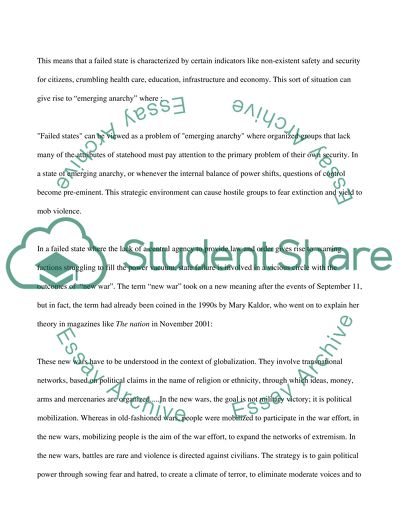Cite this document
(“The Concept of Failed State, New War and New Terrorism Essay”, n.d.)
Retrieved from https://studentshare.org/politics/1503081-nation-state
Retrieved from https://studentshare.org/politics/1503081-nation-state
(The Concept of Failed State, New War and New Terrorism Essay)
https://studentshare.org/politics/1503081-nation-state.
https://studentshare.org/politics/1503081-nation-state.
“The Concept of Failed State, New War and New Terrorism Essay”, n.d. https://studentshare.org/politics/1503081-nation-state.


